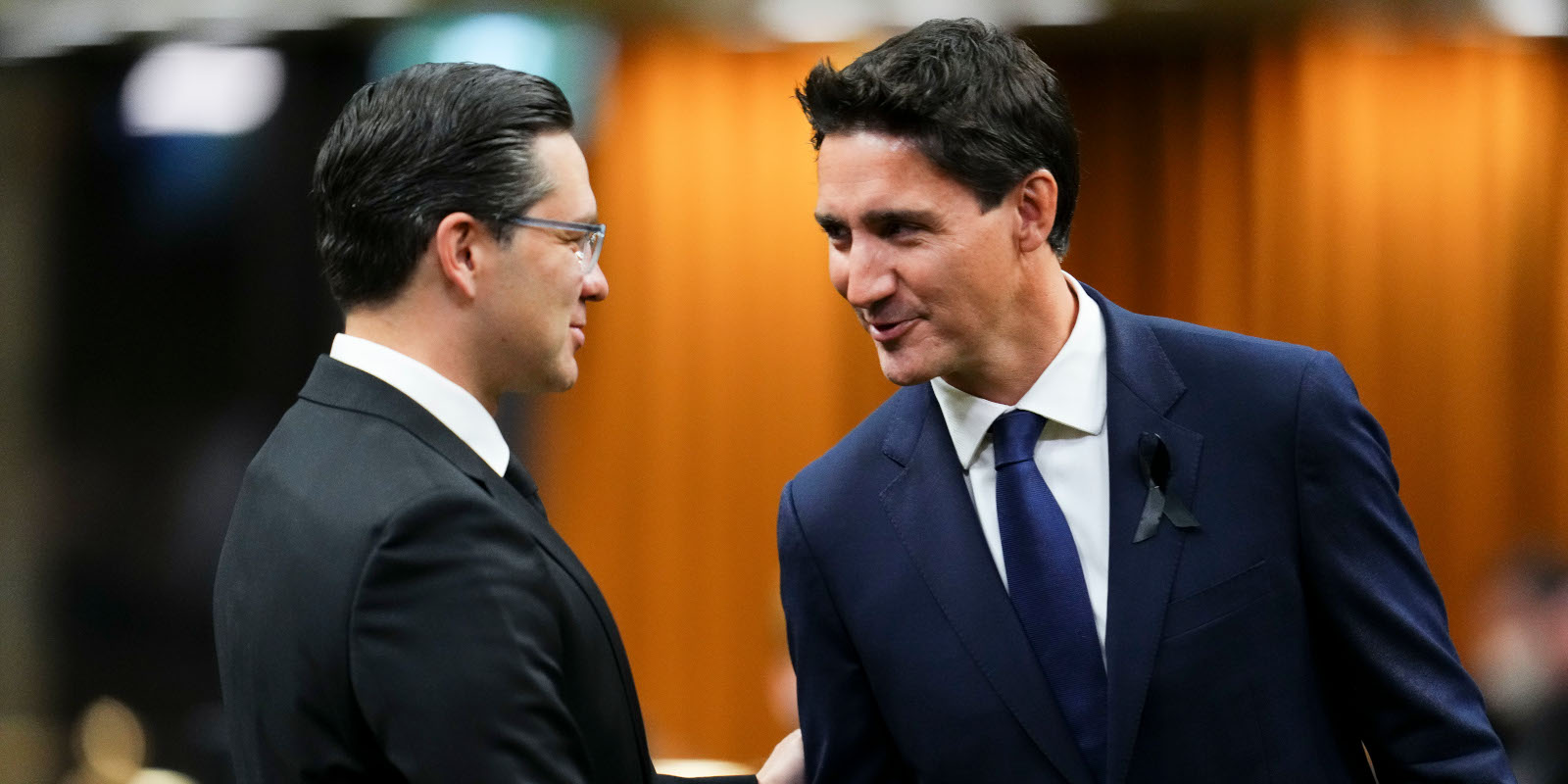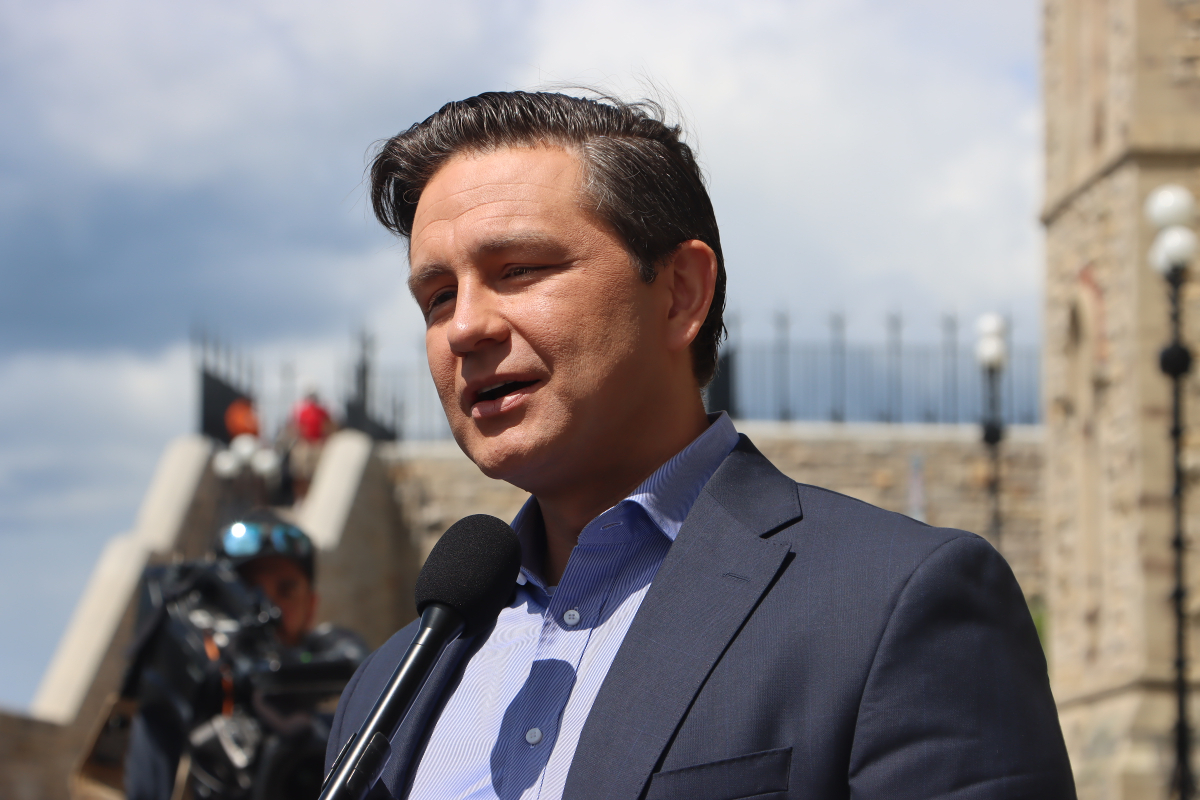Poilievre says House should be recalled as NDP vows to vote down: This high-stakes political showdown pits Conservative leader Pierre Poilievre against the NDP, creating a significant rift within the Canadian Parliament. Poilievre’s call for an immediate recall centers around [insert concise, compelling reason from the Artikel, e.g., allegations of government misconduct], sparking a heated debate about accountability and governance.
The NDP’s firm stance against the recall, however, promises to significantly impact the political landscape and public perception.
The ensuing conflict highlights key differences in political strategy and priorities. Poilievre’s demand underscores his commitment to [insert key political goal, e.g., holding the government accountable], while the NDP’s rejection reflects their [insert NDP’s key motivation, e.g., concerns about the effectiveness and potential disruption of a recall]. Analyzing the arguments presented by both sides, along with the potential consequences of this political clash, is crucial to understanding the current state of Canadian politics.
Poilievre Demands House Recall Amidst NDP Opposition: Poilievre Says House Should Be Recalled As NDP Vows To Vote Down

Pierre Poilievre’s call for an immediate recall of the House of Commons, met with a firm rejection from the NDP, has ignited a significant political firestorm. This event highlights the deep divisions within the Canadian political landscape and raises questions about the future of parliamentary cooperation.
Poilievre’s Call for Recall

Poilievre’s request for a House recall stems from his belief that urgent matters demand immediate parliamentary attention. His call follows a series of recent events that he argues necessitate immediate action from the government. The specific reasons cited vary, but generally revolve around concerns about economic instability, rising inflation, and what he perceives as government inaction on key issues.
The timeline leading up to Poilievre’s statement includes several key events, such as the release of concerning economic data, specific government policy announcements that Poilievre strongly opposes, and ongoing debates surrounding the cost of living. He has consistently framed his arguments around the need for accountability and the urgent need to address the concerns of ordinary Canadians. His key arguments emphasize the government’s alleged failure to act decisively on economic issues and the need for immediate debate and potential legislative action in the House of Commons.
NDP’s Stance and Vow to Vote Down

The NDP has unequivocally stated its intention to vote against Poilievre’s call for a recall. Their reasoning centers on the belief that a recall is unnecessary and would disrupt the planned parliamentary schedule. They argue that the issues raised by Poilievre can be adequately addressed through existing parliamentary processes and upcoming sessions. The NDP counters Poilievre’s claims of urgency, suggesting that his demands are primarily politically motivated.
A key point of contrast lies in the assessment of urgency. Poilievre portrays a crisis demanding immediate action, while the NDP frames the situation as manageable within the existing parliamentary framework. The potential political consequences of the NDP’s decision are significant. It risks alienating voters who support Poilievre’s call for action, while potentially strengthening the NDP’s image as a responsible and pragmatic party.
The decision also sets a precedent for future calls for recalls and could influence inter-party relations in the House of Commons.
Political Implications and Analysis of the Situation
This political showdown carries significant implications for public opinion, potentially influencing voter perceptions of both the Conservative and NDP parties. Key players involved include Poilievre, the leader of the Conservative Party, Jagmeet Singh, the leader of the NDP, and Prime Minister Trudeau. Their motivations range from seeking political advantage to upholding their party’s platforms and values. This event fits into the broader political landscape as a reflection of the ongoing struggle for political dominance and contrasting approaches to governance.
| Party | Stance on Recall | Reasoning | Potential Impact |
|---|---|---|---|
| Conservative | Supports Recall | Urgent need to address economic concerns | Gain political momentum |
| NDP | Opposes Recall | Unnecessary disruption of parliamentary schedule | Maintain image of responsible governance |
| Liberal | Likely to Oppose | Maintain control of parliamentary agenda | Avoid early election |
| Bloc Québécois | Undetermined | Likely based on Quebec-specific interests | Potential swing vote |
Public Reaction and Media Coverage, Poilievre says House should be recalled as NDP vows to vote down
Public reaction has been diverse, with social media reflecting a wide range of opinions. Some echo Poilievre’s concerns about the economy, while others support the NDP’s stance on maintaining the parliamentary schedule. Media outlets have framed the story through various lenses, some highlighting the urgency of the economic situation, others focusing on the political maneuvering and potential for partisan gridlock.
A visualization of public sentiment could be a bar chart comparing the percentage of individuals supporting the recall versus those opposing it, segmented by political affiliation. This would provide a visual representation of the division in public opinion. Media narratives can be categorized into those emphasizing the economic urgency, those focusing on the political strategies of the parties involved, and those analyzing the broader implications for parliamentary democracy.
Potential Future Actions and Scenarios

Following the NDP’s rejection, several scenarios could unfold. Poilievre might intensify his public pressure campaign, potentially leveraging media appearances and social media to rally public support. He might also attempt to build alliances with other opposition parties to increase pressure on the government. The rejection could impact future parliamentary sessions, potentially leading to increased partisan conflict and difficulties in passing legislation.
- Short-term consequences: Increased political polarization, heightened public debate, potential for further protests or demonstrations.
- Long-term consequences: Erosion of public trust in political institutions, potential shift in public opinion, impact on upcoming elections.
The clash between Poilievre’s call for a House recall and the NDP’s vow to oppose it reveals a deep chasm in Canadian political priorities. The outcome will likely influence public opinion significantly, shaping the narrative surrounding government accountability and the effectiveness of parliamentary processes. Whether this event leads to further political maneuvering, a shift in public sentiment, or a stalemate remains to be seen, underscoring the need for continued observation and analysis of this unfolding political drama.
Popular Questions
What are the potential long-term consequences of the NDP’s decision?
The NDP’s rejection could damage their public image, alienate some voters, and potentially embolden the opposition. It might also set a precedent for future recall attempts.
What specific actions could Poilievre take if the recall fails?
He could intensify his public criticism of the government, focus on alternative strategies to expose alleged misconduct, or shift his focus to other key policy issues.
The political deadlock continues as Pierre Poilievre pushes for a House recall, a move the NDP firmly opposes. Meanwhile, in a completely different arena, the sporting world saw a significant shift with the Brisbane Heat sign Tom Banton as injury replacement – ESPN news. This highlights how diverse news cycles can be, even as the Poilievre-NDP standoff remains a central political issue.
How might public opinion influence the outcome of this situation?
Pierre Poilievre’s call for a House recall faces opposition from the NDP, who’ve pledged to vote against it. This political stalemate mirrors the recent challenges faced south of the border, as highlighted by the news that the US Senate US Senate approves government funding extension after failing to reach a timely agreement. Such difficulties underscore the complexities of governing and the potential for similar gridlock to impact Canadian parliamentary proceedings.
The ongoing dispute over the recall highlights the deep divisions within the Canadian political landscape.
Strong public support for either side could significantly impact the political pressure on the involved parties and influence future political strategies.